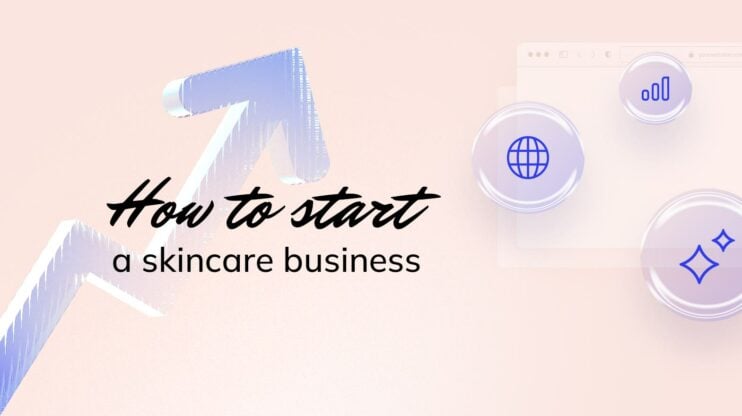Starting a business in Iowa offers a great opportunity for entrepreneurs to bring their ideas to life in a supportive and dynamic environment. With Iowa’s growing market and diverse communities, there’s plenty of potential for success. The key to building a thriving business lies in careful planning, understanding the local market, and leveraging available resources. Whether you’re launching a small local service or a larger enterprise, Iowa provides the right environment for your business to grow and succeed.
Formulating your business idea
To start a business in Iowa, it’s crucial to build a unique business idea. This involves doing detailed market research, understanding who your customers are, and keeping an eye on your competitors.
Conducting market research
Begin by gathering data about your industry. Look at current trends to see what’s popular and what’s fading away.
Use surveys or online tools to collect information directly from potential customers. This helps you know what people need and are willing to pay for. Questions you might ask include:
- What products or services are missing in the market?
- How much are people willing to spend?
Doing this helps you spot gaps in the market and create a product or service that meets real needs.
Identifying your target audience
Knowing who your customers are is crucial. Start by defining who your ideal customer is. Think about their age, gender, location, and preferences.
Create a customer profile by asking questions like:
- Who would benefit most from your product or service?
- Where do they typically shop or get their information?
Use social media and online forums to see what your target audience is talking about. This step ensures that your business idea connects with the right people and saves you from marketing to those who aren’t interested.
Analyzing competitors
Find out who your competitors are in Iowa. Investigate what they offer, how they price their products, and what marketing strategies they use.
Visit their websites and read reviews to learn about their strengths and weaknesses. This will help you figure out how to stand out.
Identify what makes your business unique. It could be your product’s features, pricing, or exceptional customer service. Knowing these aspects lets you offer something different, giving you an edge in attracting customers.
Creating your business plan
A well-thought-out business plan is crucial for success. It helps clarify your ideas, chart your path, and attract investors or lenders. Pay special attention to outlining your goals and strategies, as each section provides direction for different parts of your business.
Executive summary
The executive summary offers a snapshot of your entire business plan. It should include your business name, location, and what you do. Highlight your mission statement and the goals you’re aiming to achieve. Key Points:
- Business name: Clearly stated.
- Mission statement: Express your purpose.
- Goals: Outline your short and long-term objectives.
Keep it concise yet engaging to draw in potential investors.
Company description
This section provides details about your business and what makes it unique. Include information about where you are located and what products or services you offer. Explain your business structure, like whether you’re a sole proprietor or LLC.
Use bold text to emphasize critical parts:
- Location: City and state.
- Business structure: Type of legal entity.
- Unique selling point: What sets you apart.
Sharing your company’s story will also add a personal touch.
Marketing strategy
Your marketing strategy outlines how you plan to attract and retain customers. Identify your target market and explain how you intend to reach them. Use tactics like social media, online advertising, or local events.
Include a list of marketing channels:
- Social media: Platforms like Facebook and Instagram.
- Online advertising: Google Ads, banner ads.
- Local events: Community fairs, festivals.
Discuss pricing strategies and sales promotions to help differentiate your offerings from competitors.
Operational plan
The operational plan describes how your business functions day-to-day. Detail your location, facilities, and equipment needed. Explain the roles of your team members and the processes you will use to deliver your product or service.
Consider adding tables to organize workflows:
| Task | Responsible Person |
|---|---|
| Order Fulfillment | Jane Doe |
| Customer Service | John Smith |
This section is essential to demonstrate that you know what practical steps are needed to operate efficiently.
Financial projections
Financial projections are crucial if you seek funding. Include income statements, cash flow forecasts, and balance sheets for the next three to five years. Provide costs and revenue estimates to show financial viability.
List out financial reports:
- Income statement: Expected profits and losses.
- Cash flow forecast: Money inflow and outflow.
- Balance sheet: Assets, liabilities, and equity.
Accuracy is important. Investors will closely examine these numbers.
Choosing your business structure
Selecting the right business structure is crucial for your startup in Iowa. Each option impacts your liability, taxes, and day-to-day operations. Here’s what you need to know to make an informed decision.
Sole proprietorship
A sole proprietorship is the simplest form of business structure. You are the sole owner and have full control over all decisions. One of its main benefits is that it’s easy and less expensive to set up. You don’t need to file special paperwork, except for necessary licenses or permits in Iowa.
The drawback is that there is no legal distinction between you and the business. This means you’re personally responsible for any debts and liabilities. It might be harder to raise capital since investors tend to shy away from sole proprietorships. However, if you’re planning a small-scale business with low risk, this might be an ideal option.
Partnership
A partnership involves two or more people sharing ownership. There are two main types: general and limited partnerships. In a general partnership, partners manage the business and are liable for debts. A limited partnership offers limited liability but usually requires more paperwork.
This structure allows for combining resources and talents and makes it easier to raise funds compared to a sole proprietorship. It’s important to have a strong partnership agreement to outline profit sharing, roles, and other considerations. If disagreements arise, this document can be a lifesaver. Partnerships can be ideal for those who work well in teams and want to share responsibilities and ideas.
Corporation
A corporation is a more complex business entity that offers the advantage of limited liability. This means your personal assets are usually protected from business debts. To start a corporation, you must file Articles of Incorporation with Iowa’s Secretary of State.
Corporations are more expensive to form and maintain due to required procedures and record-keeping. You must work with a board of directors, hold annual meetings, and file reports. Despite these requirements, corporations can attract more investors due to their stock options. This structure might suit larger businesses or those planning to expand significantly.
Limited liability company (LLC)
An LLC combines benefits of both the corporation and partnership structures. As the owner, you have limited personal liability but fewer formalities than a corporation. To create an LLC, you must file a Certificate of Organization with Iowa.
The LLC structure offers flexibility in management and profit distribution. Members can choose whether the LLC is managed by an owner (member-managed) or by hired managers (manager-managed). Additionally, LLCs typically have passthrough taxation, meaning profits are taxed on your personal income level, avoiding corporate taxes. This structure is often preferred for its balance of liability protection with operational simplicity.
Registering your business in Iowa
To start your business in Iowa, you’ll need to follow some essential steps including naming your business, choosing a registered agent, filing the right documents, and getting an Employer Identification Number (EIN). Here’s what you need to know.
Selecting a business name
Choosing the right name is crucial for your business. Make sure your chosen name is unique and follows the guidelines set by the Iowa Secretary of State.
You can check name availability on the Iowa Secretary of State’s website or use a business name generator for inspiration. If you’re planning on operating under a different name than your registered business name, you’ll need to file a DBA (Doing Business As) or a trade name.
Appointing a registered agent
Every business in Iowa must have a registered agent. This person or entity will receive legal documents and important notices for your business.
Your registered agent must have a physical address in Iowa (not a P.O. Box) and be available during regular business hours. You can act as your own agent or hire a professional service. Make sure to choose someone reliable to ensure you don’t miss important communications.
Filing your business entity
Filing the right documents is a critical step. Depending on your business structure, you may need to file different forms, such as the Certificate of Organization for an LLC or the Articles of Incorporation for a corporation.
Visit the Iowa Secretary of State’s website to access these forms. You might also consider expedited services, which can speed up the processing time if you’re in a hurry to start.
Obtaining an EIN
An Employer Identification Number (EIN) is like a Social Security number for your business. It’s required for tax purposes, hiring employees, and opening a business bank account.
You can apply for an EIN for free on the IRS website. Once you have your EIN, keep this information handy as it’s often required for various business transactions and paperwork.
Addressing tax and accounting needs
When starting a business in Iowa, it’s important to address both tax and accounting needs properly. You’ll need to register for various tax obligations and set up effective accounting systems to keep your business on track.
Registering for taxes
To begin, you need to register for an Employer Identification Number (EIN) through the IRS. This number is essential for tax filings and opening a business bank account. In Iowa, if your business will sell goods or taxable services, you’ll also need a Sales Tax Permit. Register with the Iowa Department of Revenue for this permit.
Next, understand your tax obligations. Different businesses have varied duties like sales tax, use tax, or employee withholding tax. Research or consult a tax professional to grasp these requirements. This helps you avoid surprises and penalties.
Additionally, explore potential tax incentives available for businesses in Iowa. The state may offer programs that provide tax credits or exemptions depending on your industry or investment level. Taking advantage of these can optimize your financial planning.
Setting up accounting systems
Setting up a reliable accounting system is crucial for managing your business finances. Consider using accounting software to simplify the process. Some popular options include QuickBooks and FreshBooks, which help track income, expenses, and invoices effectively.
Create a checklist of accounting tasks such as maintaining accurate records, reconciling bank statements, and preparing financial reports. Keeping organized records makes tax preparation easier and can also aid in identifying areas for financial improvement.
If you’re not confident with handling accounting tasks yourself, think about hiring a professional accountant. An accountant can ensure bookkeeping accuracy and can provide valuable advice on financial decisions, helping you focus more on running your business.
Securing financing
Securing the right financing for your business helps you move forward with your plans. You’ll start by calculating how much money you need, then explore different funding options.
Determining startup costs
Figuring out your startup costs is vital to launching your business. Begin by listing all the expenses you expect to incur. Consider these key areas:
- Equipment: Machines, tools, or technology necessary for operations.
- Office space: Rent or lease cost for your space.
- Inventory: Initial stock or materials needed to produce your goods.
- Licenses and permits: Fees for required legal documents.
Once you’ve identified your costs, add them up to see what your initial investment will be. This step is crucial as it helps you avoid overlooked expenses that could impact your budget.
Exploring funding options
Once you know your startup costs, explore various funding options. Consider these possibilities:
- Small business loans: Offered by banks and the Small Business Administration (SBA), these loans provide capital with interest over time.
- Venture capital: Investors provide capital in exchange for equity or ownership stakes.
- Bootstrapping: Funding your business exclusively through personal savings or revenue.
- Grants: Non-repayable funds offered by governments and private entities.
Each option has its pros and cons, so consider factors like repayment terms and equity stakes. Talk with financial advisors or experienced entrepreneurs to choose the best path for your business needs.
Setting up your business location
Setting up your business location is a crucial step in starting your business in Iowa. You’ll need to think about finding the right spot, deciding whether to lease or buy, and getting the necessary permits to stay compliant.
Choosing a suitable location
Choosing the right location is vital for your business success. First, consider your target market. Your customers should have easy access to your business, whether it’s on foot, by car, or public transport.
Look into the demographics of the area to ensure they match your business goals. Parking and accessibility can also impact your site choice. Iowa’s larger cities, such as Des Moines or Cedar Rapids, may have more competition but can offer better visibility and foot traffic.
The Iowa Economic Development Authority can provide information on commercial space availability and community business incentives. Decide on the environment you want, such as a busy downtown area or a quieter suburban location. Each option has its advantages, so consider what aligns best with your business needs.
Leasing vs. purchasing
After finding a potential location, you need to decide between leasing or purchasing. Leasing might be a better option if you’re starting with limited funds or want flexibility. This way, you aren’t tied down and can relocate if your needs change.
When leasing, read through the lease agreement carefully and understand the terms. Look for clauses about responsibility for repairs, rent increases, and the lease’s length.
Purchasing a property can be more expensive upfront, but it offers more control over the space. It’s a long-term investment that may increase in value. If you plan to modify the building, owning might be a better fit since you won’t have to seek a landlord’s approval. Consider speaking with a financial advisor to weigh both options.
Securing necessary permits
Before opening, make sure you secure all necessary permits. Building permits might be required if you’re planning any construction or renovation. Contact your local city or county building department for guidance. Make sure to check if you need health permits, particularly if you are in the food service industry. Health inspections will ensure your business complies with sanitation standards.
Don’t forget about signage permits if you have outdoor signs. These are needed to ensure signs meet local government standards. Be sure to follow all state and local regulations to avoid fines or penalties. It’s a good idea to consult a professional if you’re unsure which permits apply to your business.
Obtaining licenses and permits
To start a business in Iowa, you need specific licenses and permits. These will depend on your industry, the type of business, and local government requirements. Understanding what you need helps ensure your business follows the rules.
Industry-specific licenses
Certain businesses require special licenses based on the industry. For example, if you’re opening a restaurant that serves alcohol, a liquor license from the Iowa Alcoholic Beverages Division is necessary. Retail businesses selling goods might need a sales tax permit.
Check with the Iowa Business License Information Center to see what specific licenses your industry requires. The center provides detailed information and guidance on obtaining the necessary permits for your business.
General business licenses
Most businesses will need some form of general licensing. Register with the Iowa Secretary of State, which typically involves a $50 fee. You might also need an employer identification number (EIN) for tax purposes.
The basic steps include checking with local city or county offices to ensure no additional local licenses are needed. Whether you’re running a small home-based business or a larger corporation, compliance with state regulations is crucial.
Special permits
Special permits may be required based on where your business is located or what services you provide. Construction businesses, for example, often need additional building permits, while home-based businesses might need zoning permits.
Consult the Iowa Business License Information Center for guidance on special permit requirements. Also, check with city or county authorities to understand local zoning laws that could affect your business operations.
Make sure to keep track of all the licenses and permits you acquire, as some may require renewal.
Protecting your business with insurance
Running a business in Iowa means thinking about business insurance. It helps keep your investment safe from unexpected events. Different types of coverage are available based on your needs.
Types of Insurance:
- General Liability Insurance: Protects against claims of bodily injury or property damage.
- Business Owner’s Policy (BOP): Combines both liability and property insurance into one package.
- Workers’ Compensation: Covers medical expenses and lost wages for employees injured at work.
Getting the right insurance for your business can feel overwhelming, but breaking it down into steps makes it simpler.
Steps to get started:
- Assess your needs: Consider the risks specific to your business type and location. Think about potential liabilities and assets that need protection.
- Research providers: Look for trusted providers who specialize in small business insurance. Compare their offers to find the best fit.
- Get quotes: Obtain quotes from multiple providers. This helps you understand the costs and coverage options available.
- Customize your coverage: Many policies can be tailored to fit the unique needs of your business, ensuring you aren’t paying for unnecessary coverage.
- Review annually: Business needs can change. Each year, review your policy to ensure it still meets your needs effectively.
By taking these steps, you can find the insurance policy that best protects your business, giving you peace of mind as you focus on growing your venture in Iowa.
Building your brand and online presence
In Iowa, building your brand and online presence is crucial for business success. Focus on creating a strong brand identity, designing an appealing company website, and effectively using social media platforms.
Creating a brand identity
Creating a brand identity begins with choosing a unique and memorable trade name. This name should reflect your business’s values and mission. You could use tools like Tailor Brands to help with logo design and branding elements.
Develop a consistent color scheme and font style to be used across all marketing materials. This helps your brand stand out and be easily recognized by customers. Your brand voice should also be clear and match the nature of your business.
Finally, ensure your brand messaging communicates what makes your business unique and why customers should choose you over competitors. A well-developed brand identity not only attracts new customers but also fosters loyalty among existing ones.
Designing a company website
Designing a company website is crucial in establishing your online presence. Start with choosing a domain name that is reflective of your trade name and easy to remember. Ensure your website is user-friendly and mobile-optimized, as many people access websites through their phones.
Create clear sections for your products or services, About Us, and Contact Information. This helps visitors find what they are looking for quickly. Include high-quality images and concise text to keep the website visually appealing and easy to digest.
Consider adding a blog to share helpful information and establish your expertise in the industry. Keep your site updated with fresh content and ensure it loads quickly to enhance user experience.
Utilizing social media
Social media is a powerful tool for reaching a broad audience. Begin by selecting platforms where your target audience is most active. For many businesses, platforms like Facebook, Instagram, and Twitter are effective.
Create engaging content that resonates with your audience, such as behind-the-scenes looks at your business, customer testimonials, and updates on new products or services. Regularly interact with your followers by responding to comments and messages promptly.
Use social media to run promotions, contests, or giveaways to increase engagement and attract new followers. Also, consider utilizing paid advertising options on these platforms to further expand your reach and drive traffic to your website.
Hiring and managing employees
When starting a business in Iowa, understanding employer responsibilities and effectively hiring and managing employees are crucial. This section will guide you through key areas, from forming solid hiring practices to implementing effective management systems.
Understanding employer responsibilities
As an employer in Iowa, your first step is to obtain an Employer Identification Number (EIN) from the IRS. This number is necessary for tax purposes.
You’ll also need to verify the eligibility of your employees to work in the U.S. using the I-9 form. It’s imperative to report new hires with the state, ensuring compliance with state regulations. Additionally, you must adhere to the Minimum Wage Law, which is set at $7.25 per hour. Consider exceptions for special cases, like the subminimum wage for new employees under the age of 20. Stay updated with workplace safety regulations too.
Recruiting and hiring staff
When hiring, focusing on clear job descriptions and attractive advertisements can help you reach qualified candidates. You can post jobs online, attend local job fairs, and use social networks to find potential employees.
During the recruitment process, consider preparing structured interviews to fairly assess applicants. After selecting a candidate, have them fill out the necessary forms, such as the W-4 for tax withholding. If you’re hiring in bulk, it might be helpful to develop a standardized onboarding process. Clearly communicate job expectations and provide relevant training to set your employee up for success.
Employee management systems
Implement a reliable employee management system that can handle payroll, performance evaluations, and more. This could be software that tracks work hours, manages benefits, and stores personnel information securely.
Consider performing regular check-ins or reviews to maintain open communication with your employees. This helps address any concerns early on and motivates a positive work environment. Offering feedback and recognition is essential for productivity and job satisfaction. Make sure employees are aware of company policies, benefits, and opportunities for growth. Keeping your team engaged and informed promotes a thriving workplace.
Networking and growth strategies
Building a strong network and leveraging available resources are essential for growing your business in Iowa. Connecting with local entrepreneurs and utilizing platforms like IA SourceLink can help you navigate the business landscape effectively.
Connecting with local entrepreneurs
Reaching out to local entrepreneurs opens doors to valuable insights and guidance. Attend local business meetups and industry events to meet others who share your passion. These gatherings are great places to learn from the experiences of others and get advice.
Collaborating with owners who have been in the industry for a while can provide mentorship opportunities. You can discuss challenges and solutions together, building a support system. Joining local chambers of commerce also helps you connect with potential partners and clients.
Online forums and social media groups dedicated to Iowa businesses can be useful too. Participating in these groups can provide you with real-time knowledge and immediate support. Stay active and engage in discussions to expand your network and build your reputation.
Leveraging business resources
Iowa offers many resources to help your business thrive. IA SourceLink is a key platform that connects entrepreneurs with helpful tools and information. IA SourceLink offers free events, webinars, and guides tailored to local business needs.
Additionally, the Iowa Small Business Development Center is an excellent resource. It provides personalized advice and resources to develop your business effectively. They offer training workshops, consulting, and research services aimed at helping your business grow.
Consider attending state-sponsored seminars, which often cover topics like marketing, finance, and management skills. These resources can keep you updated on best practices and industry trends. Access to these tools can greatly enhance your growth strategy and ease the decision-making process.
Maintaining compliance and good standing
To keep your Iowa business in good standing, you’ll need to manage important tasks such as filing annual reports and submitting Beneficial Ownership Information. Staying on top of these requirements helps your business avoid penalties and maintain its legal protections.
Annual filings and reports
Every business in Iowa must submit annual filings to stay compliant. This typically involves an Annual Report, which you can file online using the Secretary of State’s Fast Track Filing system. The fee is $30 if filed online and $45 if filed by mail or in-person.
You should also consider using a Registered Agent Service to ensure timely handling of important documents. Select a registered agent who will receive legal and official paperwork on behalf of your business, ensuring you never miss a filing or legal requirement. Keeping an Operating Agreement updated is optional for LLCs but highly recommended, as it sets out the rules for running your business.
Beneficial ownership information
Submitting Beneficial Ownership Information helps the government understand who has control over your company. The Beneficial Ownership Information (BOI) Report is important for providing transparency and is required for many businesses.
The BOI report includes details about individuals who own or control at least 25% of the company. Include their name, address, date of birth, and a unique identification number, such as a driver’s license or passport.
Follow these steps to submit your BOI report:
- Gather all necessary ownership information.
- Complete the BOI report with the required details.
- Submit the form to the appropriate state authority.
Make sure your BOI report is complete and accurate to avoid any compliance issues.
Considering expansion and scaling
Scaling your business in Iowa involves tapping into new markets and expanding your product or service offerings. It’s key to plan carefully to ensure success and sustainability.
Exploring new markets
When expanding, consider exploring new markets to increase your customer base. Identify potential areas within Iowa or in neighboring states where there’s demand for your product. Conduct thorough market research to assess the local economy, competition, and potential customer demographics. These insights will guide you in tailoring your marketing strategies and adjusting your product offerings to meet market needs.
Focus on forming strategic partnerships to enter new markets. Collaborate with local businesses or industry groups to create opportunities for networking and co-marketing. Forming an LLC can provide flexibility and liability protection as you enter new jurisdictions.
Diversifying offerings
Diversifying your product or service offerings can also drive growth. Look at your current lineup and identify where you can introduce new features or complementary products. Innovation can attract different customer segments and create new streams of revenue.
Conduct a cost-benefit analysis to evaluate the financial implications of diversifying. This will help ensure that the expansion aligns with your business goals and financial capacity. Consider feedback from your existing customers to guide your diversification efforts.
Develop a plan for business formation or reformation to accommodate new product lines, ensuring that all legal and regulatory requirements are met. This might include updating business licenses, complying with safety standards, or adjusting your supply chain management.
Exploring the nonprofit sector
Starting a nonprofit in Iowa offers a great opportunity to make a difference in your community. The process requires attention to detail, but with the right guidance, you can succeed.
Benefits of nonprofit organizations in Iowa:
- Community impact: Nonprofits have a significant role, employing more than one in 10 Iowans in the private sector.
- Volunteerism: Iowa ranks high in volunteerism, which adds great value to nonprofits.
Steps to start a nonprofit in Iowa:
- Select a name: Choose a name that reflects your mission. Make sure it’s unique and complies with Iowa’s naming rules.
- Choose a registered agent: This person will handle legal documents and notices for your organization.
- Draft and file articles of Incorporation: Submit these to the Iowa Secretary of State. This step legally creates your nonprofit.
- Appoint board members and officers: Select dedicated individuals to guide your nonprofit.
- Adopt Bylaws and Conflict of Interest Policy: These rules will govern your organization and ensure ethical decision-making.
- Get an Employer Identification Number (EIN): Obtain this from the IRS for tax purposes.
- Apply for 501(c)(3) status: If applicable, this status will grant you tax exemption and allow donors to make tax-deductible contributions.
Explore resources like the Iowa Secretary of State and organizations such as Guidestar to gain more insights and ensure your nonprofit is set up for success.
Conclusion
Starting a business in Iowa is a promising endeavor, with the state’s welcoming business climate and ample resources to support entrepreneurs. By focusing on market research, understanding your audience, and utilizing available tools, you can set the foundation for long-term success. With determination and the right approach, your business has the potential to thrive in Iowa’s growing economy.
FAQ
What are the necessary steps for registering a business in Iowa?
Are there any grants available for starting a small business in Iowa?
What initial costs should I expect when launching a new business in Iowa?
Can I start a business from home in Iowa, and if so, how?
What resources are available for starting an online business in Iowa?
What strategies can I use to start a business when I don't have any startup capital?













